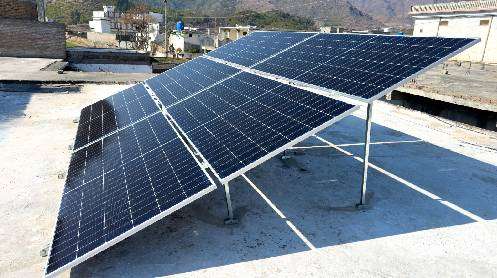ISLAMABAD: Pakistan has imported more solar panels from China in the past five years than many G20 countries, with over 16 gigawatts (GW) shipped in 2024 alone, according to a new report by think tank Renewables First.
Titled “Leader of One or Leader of None – China’s Choice for Clean over Coal in Pakistan”, the report reveals that more than 39GW of solar panels—almost entirely from China—have entered Pakistan since 2019. That volume surpasses three-quarters of Pakistan’s current installed generation capacity, signifying a dramatic shift in the country’s energy landscape.
The report highlights a “Solar Rush” in Pakistan, largely driven by individuals and businesses installing panels on rooftops, farms, and factories—not government policy. This grassroots solar boom has been fueled by low-cost Chinese technology, open competition, and favorable trade conditions.
“China is now the de facto global supplier of renewable energy tools,” the report states, noting that as the U.S. retreated from global climate leadership, China stepped in to provide the infrastructure enabling developing nations to transition to clean energy.
However, this solar surge is not without contradictions. Pakistan still hosts billions of dollars’ worth of Chinese-financed coal power plants—assets that are increasingly underutilized. Some coal plants operated at just 4% capacity in 2024, while capacity payments to them surged, driving up electricity costs for grid-reliant consumers.
“China’s solar panels are outcompeting China’s power plants,” said lead author Muhammad Basit Ghauri. “Pakistan is now ground zero for a global energy disruption—where distributed, people-powered solar is undermining centralised coal-fired generation.”
The report warns that Pakistan now urgently needs storage solutions, smart grid upgrades, local manufacturing capacity, and financial mechanisms to transition away from stranded coal assets.
“If China can support Pakistan through this transition,” the report concludes, “it won’t just be enabling a national energy transformation—it will be shaping a new, equitable energy paradigm for the entire Global South.”
Story by Rehan Ayub







